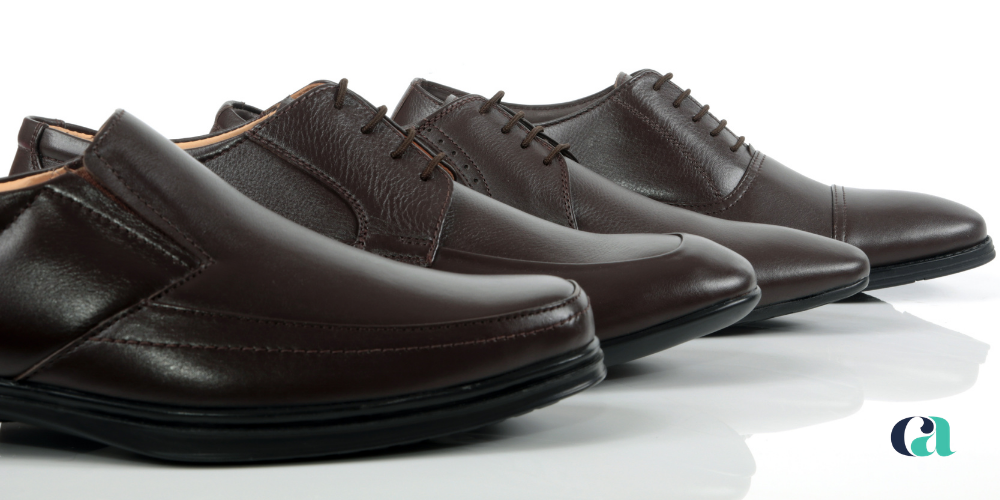Jo joined Cathedral Appointments over 25 years ago and now leads the business alongside Clodagh, who joined the company in 2021. Jo is a local employment expert and a former board member of Exeter’s leading business membership organisation, Exeter Chamber. She is also a Fellow of the Recruitment and Employment Confederation (REC) and has an Associated CIPD membership.
Blog
Are office dress codes changing?
Posted in Employers
Many workers have spent the last year and a half working from home in the comfort of loungewear, slippers and other ‘comfy clothes’, with the smart-shirt-and-pyjama-bottom combo not uncommon.
At the start of the pandemic, it was recorded that by May 2020, the UK’s demand for casual and loungewear had skyrocketed by 49 per cent. With no reason to leave the house, especially in the initial months of lockdown, formalwear sales dropped by 25 per cent and slipper sales boomed by a whopping 285 per cent.
As UK businesses reopen and we start to get a taste of ‘normality’, many are left wondering about the future of office dress codes – will slippers, jogging bottoms and a nice top be acceptable? Probably not, but who knows! What is for certain however is that the styles we saw pre-pandemic aren’t going to be making a comeback anytime soon. According to Klarna Bank, more than two thirds of consumers plan to change their office wardrobe completely when we the return to some sort of ‘normal’.
But enforcing a ‘uniform’ or strict clothing rules isn’t a new debate, it’s something that has been around for many years. While some employees cite a liking for being told what to wear, others believe it can be a real hinderance as well as bring up some serious inclusion issues.
Here are a few pros and cons of having a dress code in the workplace:
Pros
It separates work from home
Having separate home and work wardrobes can set boundaries and contribute to a healthy work/life balance. Psychologically, when you put on a pair of slouchy joggers or a loose top after a day of wearing a suit or dress, your body allows itself to unwind and relax.
Going one step further than this, reverting to formal officewear may help employees to put the pandemic behind them, distinguishing the ‘comfy COVID’ era from ‘normality’.
Formalities elicit trust
Research by Stormline found that 68 per cent of employees are more likely to trust a ‘well-dressed’ colleague than someone in the same position in more casual attire. As suggested in INC; “Like it or not, your clothes and presentation communicate volumes about you as a person. Your clothes tell a story about you. If you want to show that your work is clean, sharp, and to the point, you need to dress in clean lines, sharp creases, and (yes) points on your shoes and tie.”
A good outfit can change your whole mindset
There’s a reason why the ‘power suit’ was so aptly named, it makes the wearer feel powerful. And going one step further, a new study by Abraham Rutchick suggests that the feelings putting on formalwear creates makes us perceive the world differently. You’re more likely to be able to take criticism better and make smarter financial decisions.
Cons
You may risk your team’s productivity
Even though formalwear may change your mindset when it comes to resilience or whether to opt for a homemade lunch over a shop-bought one to save money, this may not necessarily equate to productivity. According to Hive, 61 per cent of employees are said to be more productive when the dress code is more relaxed, they also report to have better confidence levels.
The expectation could cause problematic socio-economic divides
Adhering to formal dress codes can be pricey. As reported by Welp Magazine, the average office attire could set a woman back by, on average, just over £700, with some shops reaching costs of more than £1,000. For someone on an average salary of £30,000, that means working just over 10 days to afford the expected formalwear – a spend many may not be able to make. By enforcing this kind of expenditure, an avoidable socio-economic divide will begin to occur within the workplace, opening the office up to unscrupulous inclusion issues.
There are a lot of factors to take into consideration when deciding whether to enforce a dress code in the workplace. If you're unsure of what route to take, it could be worth undertaking an employee survey to take the temperature of the room and then following the consensus. Of course, there will be times where formalwear is expected, such as during important client visits or external meetings, so in these instances it’s crucial to have a policy in place outlining this rule and explaining why it is in place.

About cookies
We use cookies on this site to help improve user experience and deliver services. By using this site you consent to the use of cookies.
